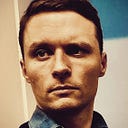Member-only story
Belarus’s Struggle for Democracy
A former high-ranking government official in Belarus, Pavel Latushka has witnessed President Lukashenko’s system of power from the inside.
After a sham election triggered widespread protests, he joined the ranks of the resistance to the regime. Now in political exile, Latushka speaks about the struggle to keep the Belarusian pro-democracy movement alive.
The Belarusian protests began before the contested August 2020 election but exploded in size after it became clear that Lukashenko had rigged the results in his favour. Can you explain how the democracy movement emerged and gathered momentum?
Pavel Latushko: Artem Sakov, Dzmitry Popau, Pavel Seviarynets, Aliaksandr Shabalin, Uladzimir Tsyganovich.
[pause]
I want to start with these five names. Today, we have 362 political prisoners in Belarus. And as of today, I have decided to begin all my interviews acknowledging their struggle by naming five of them. Europe should know their names. The rigged election was the first protest trigger. The second was the ensuing mass violence. I remember when the internet was switched off and we had a three-day information blackout. When the internet came back on, I remember receiving all these messages on my phone, showing me videos and photos of massive police brutality. It was horrible.
